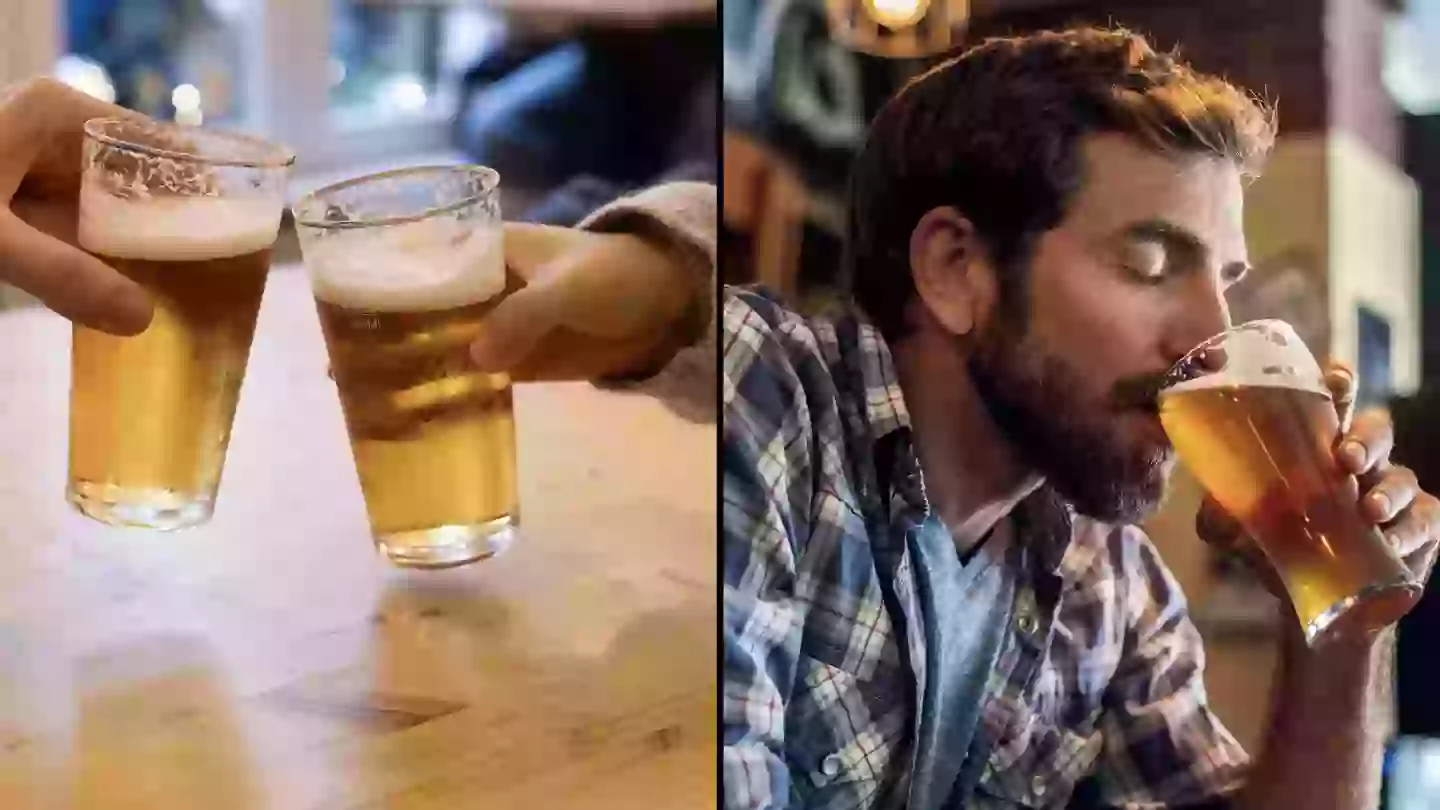
It's pretty well accepted that, as a nation, we drink a little more than normal over the festive season.
Over Christmas, you're meeting up with friends and family, heading on your work dos, and probably indulging a little more, attempting to adjust to the miserable weather.
So, it comes as no surprise that over 60 percent of drinkers in the UK consume more alcohol than they normally do during the Christmas period, according to Drinkaware.
Advert
The alcohol charity said their poll showed that 'drinkers who work are also more likely to feel pressured to drink at their festive work party (33 percent) than other times of year'.
What happens when you binge drink
Dr Patrick Kennedy, consultant hepatologist and gastroenterologist at King Edward VII’s hospital, told Huffington Post: “There is no question that excess alcohol consumption and any increased drinking pattern - typical of the pre-Christmas spike - has a major impact on our health.
“Too often, we also overlook the negative impact alcohol has on our general health affecting the brain, the heart, our skin, in addition to its association with many cancers.
Advert
"My concern is around liver damage and potential for repeated spikes to cause liver injury, which ultimately can lead to chronic liver disease.”
.webp)
Why doctors worry about binge-drinking this time of the year
Kennedy said: “Of course health professionals worry about this time of year as it is synonymous with excess.
“Increased drinking patterns above the ‘normal’ background level of alcohol consumption can be enough to precipitate liver related problems or symptoms.”
Advert
The doctor warns that thinking, 'It's only one month of the year,' is similar 'to the just one more drink' culture.
"The effects of alcohol are cumulative, the more you drink, the greater the risk," he said.
.webp)
How much should you drink?
The NHS advises people to not regularly drink more than 14 units a week.
Advert
One unit of alcohol is 8g or 10ml of pure alcohol, which is about half a pint of lower to normal-strength lager/beer/cider (ABV 3.6 percent), a single small shot measure (25ml) of spirits (25ml, ABV 40 percent), or a small glass (125ml, ABV 12 percent) of wine containing about 1.5 units of alcohol.
Providing a more simple method, Dr Kennedy said: "The most simple intervention that I recommend is consecutive alcohol-free days. I usually recommend 3-4 consecutive alcohol-free days per week."
Please drink responsibly. If you want to discuss any issues relating to alcohol in confidence, contact Drinkline on 0300 123 1110, 9am–8pm weekdays and 11am–4pm weekends for advice and support.
Topics: Alcohol, Christmas, Food And Drink, Health, Friends